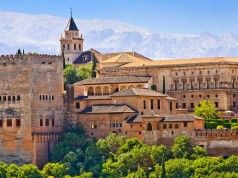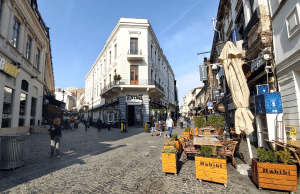Is tourism in a crisis? Especially the aristocratic sector of the meetings and incentive industry? The answer is plain and simple: No. International and, with it, subalpine tourism are bravely defying the depression that has overcome a wide range of economic branches, especially the construction and automotive sector.
Tourism is facing the current year with careful optimism and an anticipation of positive results. This is partly because these results are anticipated by the experts from the World Tourism Organisation, partly because we are following last year’s slightly worse results and better results will be easier to achieve and just a little because we are usually in a good mood anyway as we are employed in the friendliest of all sectors. However, we cannot neglect the fact that business or convention tourism is much more vulnerable than holiday tourism. It generates more revenue but it is also more dependant on the political climate and the general health of the national, regional and international economy. When we are doing well, we do really well. When the pharmaceutical industry catches a cold however, the meetings industry gets pneumonia.
This awareness is useful and welcome. It is much better than snuggling up to a stove tearing our hair out and wondering what is wrong. What is more, convention tourism is much more keenly aware of this sensitivity precisely because of its exposure and is thus better at overcoming it through constant learning, flexibility and good cooperation practices. In many aspects, convention tourism is the engine behind the general development of tourism: its protagonists are the first to point out eventual mistakes in the tourist policy, they facilitate intelligent investment cycles and implement new knowledge. A good example is sustainable development: the need for “green tourism” was introduced to Slovenia in February 2008 by Kongres magazine.
As we can read in the new book recently published by GO.MICE, Crisis Management, Risk Management and Crisis Communication in Tourism, tourism is part of the solution for the national economy and is by no means a part of the problem. As the most adaptable branch of tourism (alongside sports, cultural, city and littoral tourism and other branches of this sector), it was the first to point out remedial management for the strategic alleviation and relief of the external and internal effects of the economic crisis. In convention tourism, the general concern that the majority of tourist workers, from the management to the technical personnel, simply do not read as they are not interested in anything other than the current dog scandal is simply not true. Convention tourism is undoubtedly the most dynamic sector, whose vivacity and inquisitiveness can and must influence others. This is why it should receive even more support and trust, both on the political and the concrete or material level.
By the way… Does anybody ever think about how we were scared of the new flu virus last autumn? “Don’t panic,” said the Good Soldier Schweik.













